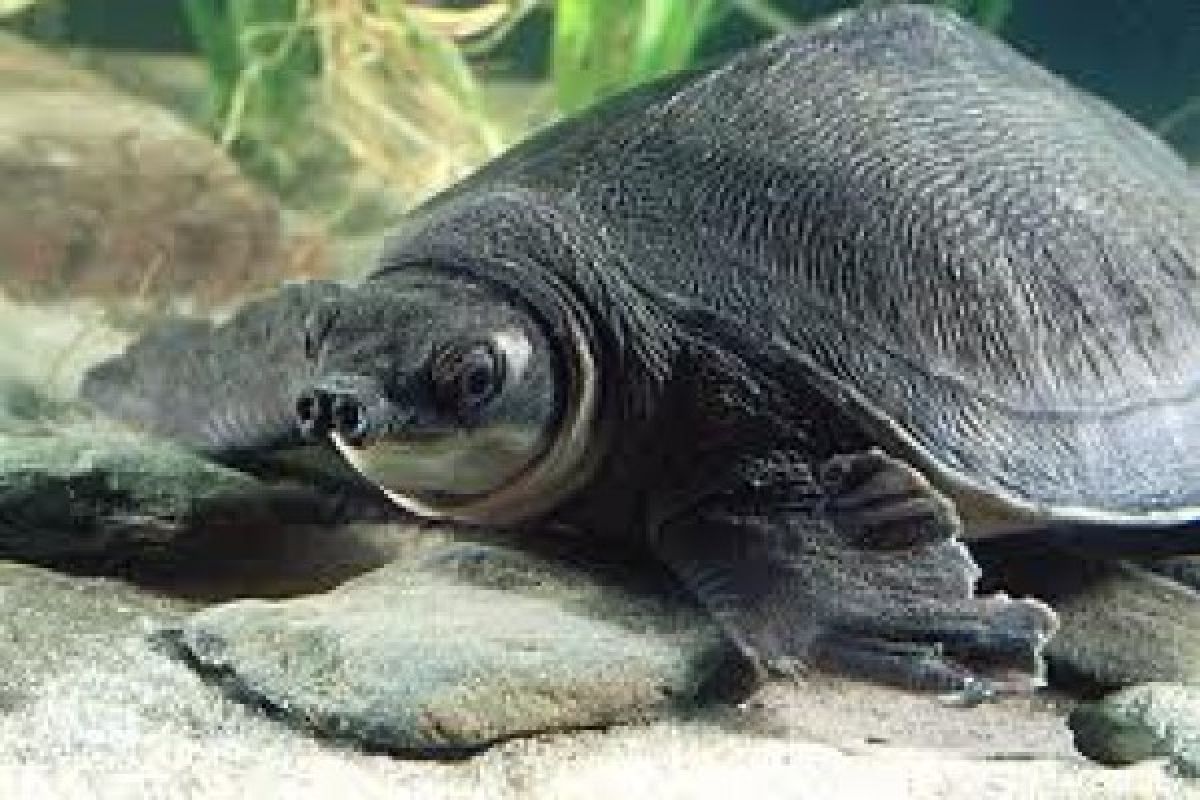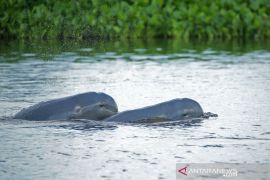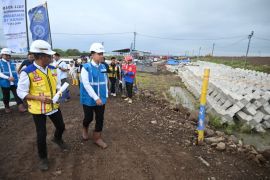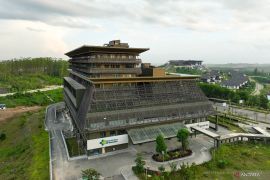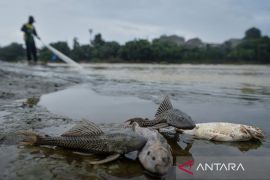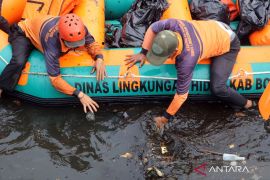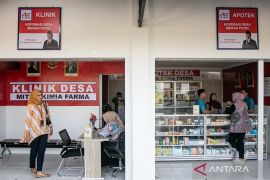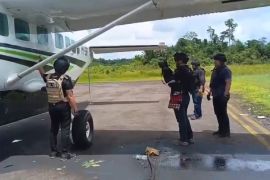Even though these turtles are not categorized as protected and endangered animals ..."Jakarta (ANTARA News) - As the illegal trade of wildlife continues to flourish, the government needs to work harder to crack down on pet trade to protect the endangered pig-nosed turtles (Carettochelys insculpta) from extinction.
Pig-nosed turtles are in constant danger of both human and environmental threats, as a result of which their population continues to decline. Therefore, the government needs to take measures to prevent smugglers from capturing these animals.
On Wednesday, the Bakauheni seaport police in South Lampung district, Lampung province, foiled an attempt to smuggle 41 pig-nosed turtles.
The protected pitted-shelled turtles were discovered in a truck with police plate BH 8888 GU, which was en route from Jambi province in Sumatra Island to Jakarta, according to Chief of the Bakauheni seaport police Adjunct Commissioner Feria Kurniawan.
"Even though these turtles are not categorized as protected and endangered animals, they cannot be transported without legal documents. Therefore, we seized them," he remarked.
Kurniawan noted that the seized turtles were then handed over to the Bakauheni-based agricultural quarantine office.
According to the police chief, they were able to prevent the attempt to smuggle the undocumented animals due to the routine checks carried out at the Seaport Interdiction.
He added that the sender of the turtles was identified as Aping, a resident of Jambi province, while the person receiving them was identified as Aken, a resident of Jakarta.
TRAFFIC, a wildlife trade monitoring network, reported on its website http://www.traffic.org in October 2014 that intensive illegal collection of the vulnerable pig-nosed turtles as pets, food, and for traditional medicine has reached an alarming level.
It said that the pig-nosed turtle was protected under a national legislation and listed under appendix II of the Convention on International Trade in Endangered Species of Wild Flora and Fauna, which restricts international trade in wild-caught creatures.
A 2011 study of the pig-nosed Turtles in Papua found that the species was suffering a severe decline in population due to overharvesting.
The latest study found that pig-nosed turtle eggs are collected from river banks by villagers, who incubate them in hatcheries before selling the young turtles into the global traditional medicine and pet trades.
An estimated 1.5 to 2 million eggs are collected every year, although it is believed that current figures may be considerably higher and are continuing to rise.
Minimal law enforcement at the source allows such practices to continue unhindered, which leads to the exploitation of these turtles even along remote waterways.
Moreover, international demand for the turtles is also reportedly increasing. Survey respondents spoke of companies drying and grinding the turtles into powder to supply traditional medicine markets in China and Hong Kong and of the growing online marketplace for live pig-nosed Turtles.
More than 30 seizures, amounting to more than 80 thousand individual pig-nosed turtles, took place between 2003 and 2013.
They included a massive single seizure in 2009 of 12,247 pig-nosed turtles in Timika, Papua.
More recently, 8,368 animals were discovered in several suitcases in connected seizures in Papua and Jakarta in January 2014.
"Urgent law enforcement measures are needed in Papua province to target middlemen operating in rural communities," Regional Director of TRAFFIC, Southeast Asia, Chris Shepherd emphasized.
"We also recommend monitoring ports such as Agats, Merauke, Timika, Jayapura and Jakarta, and increasing enforcement at international points of the trade chain in Singapore, Malaysia, Thailand, mainland China and Hong Kong," he noted.
Furthermore, Mimika Police Chief Adjunct Senior Commissioner Mochammad Sagi confirmed that some 10,908 pig-nosed turtles were released into their habitat in the Wania river, Paumako harbor, Mimika Timur district, Papua province, in that last few years.
"We released them into the Wania river in Paumako harbor," he affirmed, adding that pig-nosed turtles are protected under Law Number 5/1990 on Natural Resources and Ecosystems Conservation.
The Mimika police had foiled an attempt to smuggle out the 10,908 pig-nosed turtles from Timika in 2010, and arrested two people identified by their initials as A and YW.
The police had raided YWs house in the Kamoro SP1 Timika area and seized the pig-nosed turtles after receiving a tip-off from local people.
The turtles had been poached in the Asmat region and were supposed to be transported to Jakarta.
In addition, PT Freeport Indonesia, which engages in tin, gold and silver mining operations in Mimika district, still plays a key role in the preservation of fauna and flora, including releasing the rare pig-nosed turtles.
Spokesman for PT Freeport, Ramdani Sirait said that the mining company continued its efforts towards preserving the rare animals by facilitating their release into their natural habitat in Papua.
He noted that the task was carried out by Freeport in cooperation with the Animal Saving Center Network (JPPS) in Cikananga, Sukabumi, West Java, and the Directorate General of Forestry Protection and Natural Conservation of the Forestry Ministry.
The pig-nosed turtle, also known as the pitted-shelled turtle or the fly river turtle, is a species of turtle native to northern Australia and southern New Guinea.
This species is the only living member of genus Carettochelys, subfamily Carettochelyinae and family Carettochelyidae, although several extinct carettochelyid species have been described from around the world.
The pig-nosed turtle is unlike any other species of freshwater turtles. Their feet are flippers, resembling those of marine turtles, and their nose resembles that of a pig, with nostrils that end in a fleshy snout, hence the common name.
The carapace is typically grey or olive, with a leathery texture, while the plastron is cream-colored.
Males can be distinguished from females by their longer and narrower tails.
Unlike the soft-shelled turtles of the Trionychidae family, pig-nosed turtles retain a domed, bony carapace beneath their leathery skin, rather than a flat plate.
(.TO001/INE/KR-BSR/A014)
Reporter: Otniel Tamindael
Editor: Priyambodo RH
Copyright © ANTARA 2015
